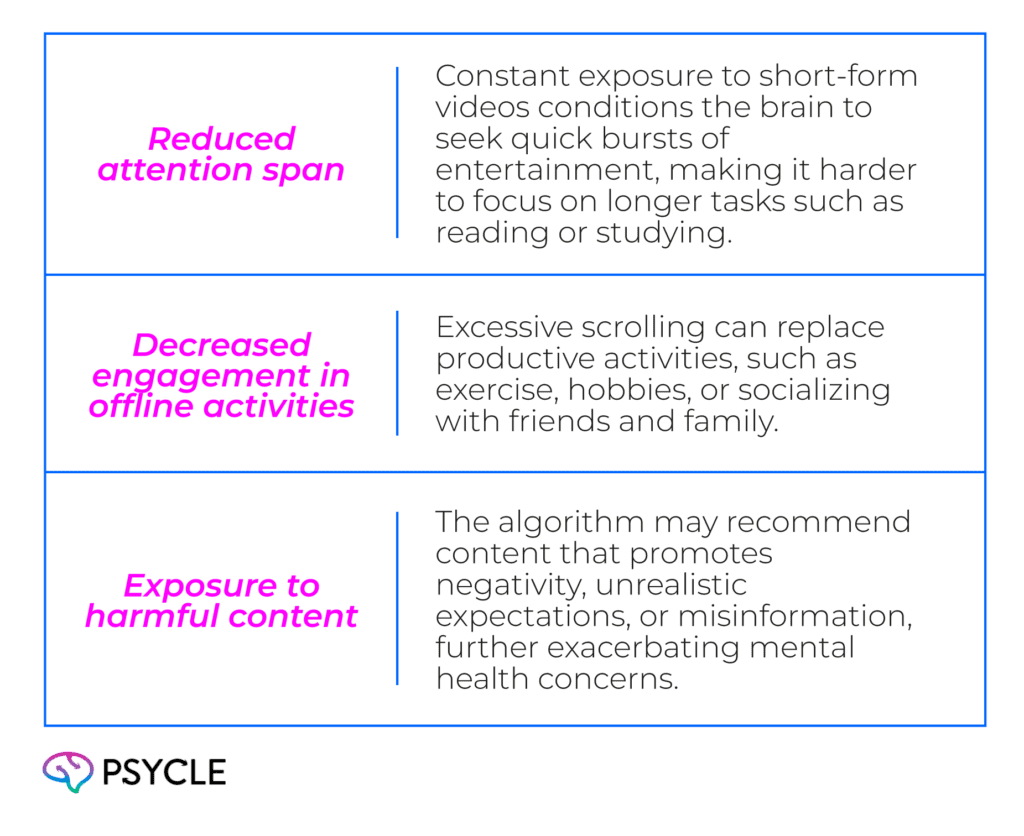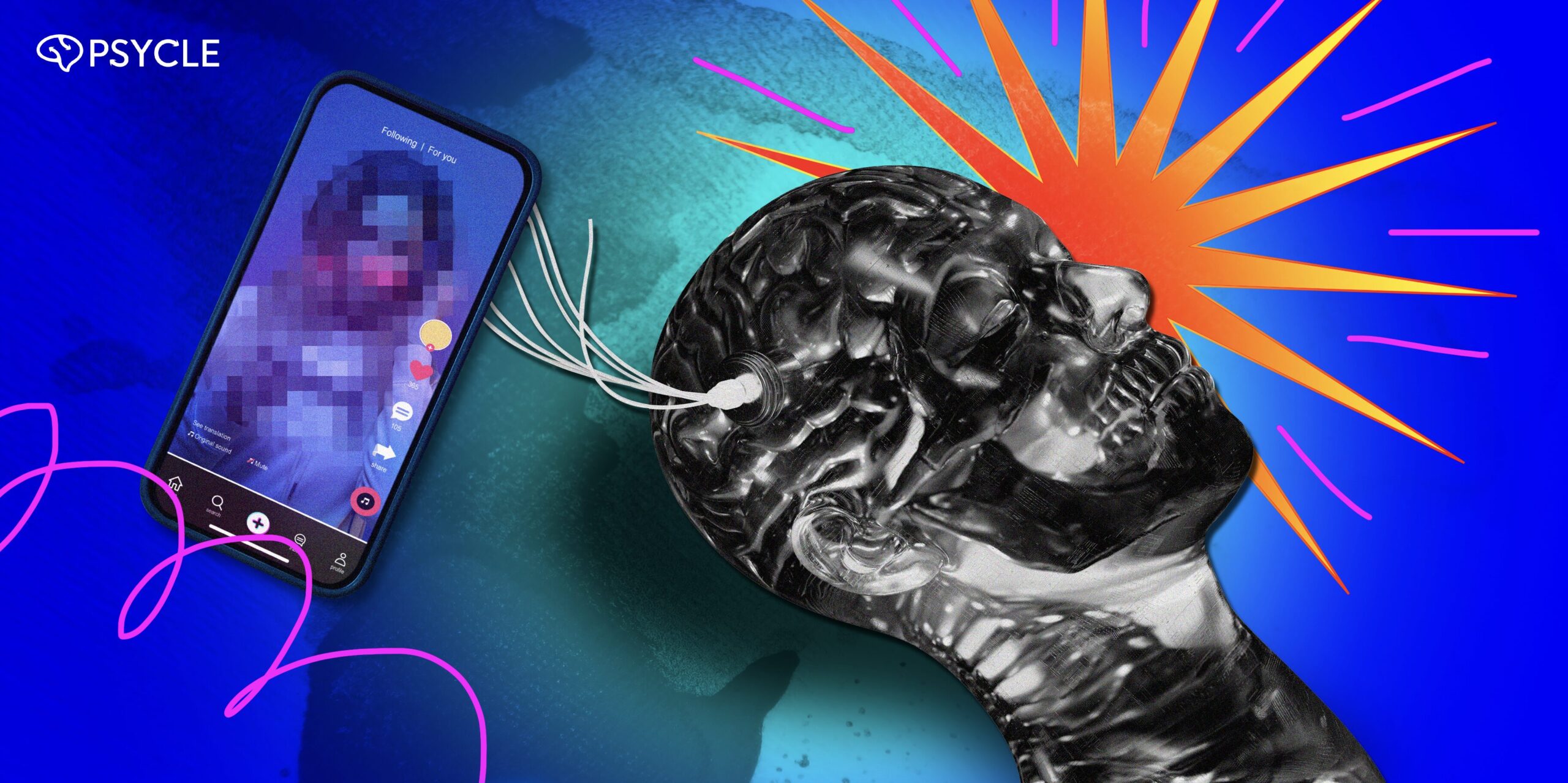TikTok has quickly become one of the most widely used social media platforms, particularly among younger audiences. While it provides entertainment, creative expression, and community engagement, excessive use has been linked to several negative mental health effects.
This article explores the potential negative impact of TikTok on mental health and provides strategies for managing screen time more effectively.
Key Takeaways
- Excessive TikTok use has been linked to addiction-like behaviors, decreased attention span, and negative self-esteem.
- Studies suggest a connection between TikTok use and depression symptoms
- The passive consumption of TikTok content is associated with lower life satisfaction.
- Social media exposure can contribute to body dissatisfaction and unrealistic beauty expectations.
- Reducing screen time and engaging in offline activities can improve overall mental well-being.
The Rise of TikTok: Understanding Its Popularity
What is TikTok?
TikTok is a social media platform that allows users to create and share short-form videos, typically lasting between 15 seconds and three minutes. The app’s algorithm is designed to recommend content based on user preferences, making it highly engaging and personalized. TikTok features content related to various topics, including dance, humor, education, lifestyle, and self-improvement.
TikTok Growth Statistics
Since its launch in 2016, TikTok has experienced exponential growth. In 2023, TikTok had over 1.7 billion active users, with at least a quarter being between the ages of 10 and 19. The platform is forecasted to reach 2.35 billion users by 2029.
How Does TikTok Affect Mental Health?
Social Media, Dopamine, and Addiction
Social media platforms, including TikTok, activate the brain’s reward system by releasing dopamine, a neurotransmitter associated with pleasure and motivation. Dopamine is typically released in response to rewarding activities such as eating, exercising, or receiving positive social interactions.
However, excessive exposure to dopamine-triggering stimuli, such as social media likes, comments, and videos, can reduce the brain’s sensitivity to pleasure. Over time, this may lead to increased dependency on digital stimulation, resulting in difficulties experiencing enjoyment from real-life activities.
The Dangers of Doom-Scrolling on TikTok
Doom scrolling refers to the habit of continuously consuming harmful or distressing content for extended periods. This behavior can contribute to anxiety, stress, and feelings of helplessness.

TikTok’s Impact on Self-Esteem and Body Image
Social media platforms often present an idealized version of reality. Many TikTok users, particularly influencers, curate their content to showcase seemingly perfect appearances and lifestyles. This can contribute to self-esteem issues and body dissatisfaction among viewers.
- Unrealistic Beauty Standards: Filters, editing tools, and beauty-enhancing features create an unattainable standard of physical appearance.
- Social Comparison: Observing influencers with seemingly flawless lives may make users feel inadequate or insecure about their bodies and achievements.
- Encouragement of Unhealthy Behaviors: Certain trends on TikTok promote extreme dieting, excessive exercise, or cosmetic procedures as a means of achieving an idealized look.
Does TikTok Contribute to Loneliness?
Although TikTok connects users to a large online community, excessive usage can lead to increased feelings of loneliness and social isolation.
- Reduction in Face-to-Face Interactions: Individuals who spend significant amounts of time on TikTok may neglect in-person social interactions, leading to weakened relationships.
- Perceived Social Exclusion: Watching videos of others engaging in enjoyable activities may contribute to feelings of missing out or social inadequacy.
- Diminished Social Skills: Excessive reliance on virtual communication can hinder the development of essential social skills needed for real-world interactions.
The Link Between TikTok and Mental Health Disorders
TikTok and Depression
Research has found a significant correlation between excessive TikTok use and symptoms of depression. A study conducted in Serbia involving 620 students revealed that people with problematic internet use were likelier to be TikTok users.
This group of students was also more likely to report clinically significant depressive symptoms. This suggests that prolonged engagement with social media platforms, including TikTok, may contribute to mood disorders.
TikTok’s Effect on Life Satisfaction
A study in China involving 1,254 students found that passive TikTok consumption (watching videos without engagement) was associated with lower life satisfaction and decreased positive emotions. On the other hand, active participation, such as creating and sharing content, was linked to higher levels of life satisfaction.
Body Image Issues and TikTok Exposure
A study conducted on over 11,200 students in the U.S. found that TikTok users were significantly more likely to experience body image concerns than those who did not use the platform.
Another study in Spain revealed that exposure to TikTok advertisements was directly linked to lower body satisfaction in young people and increased emphasis on physical appearance.
TikTok and Sleep Issues
TikTok addiction was related to reduced sleep duration and increased sleepiness in school in young people in Greece. Sleep is when many restorative processes happen in the brain, and TikTok could prevent these from occurring, impacting brain health and overall well-being.
Practical Tips: How to Reduce TikTok Usage for Better Mental Health
If you’re concerned about TikTok influencing your mental health, here are some strategies you can consider to prevent overuse and the harmful effects of the platform:
- Set Screen Time Limits: Utilize TikTok’s built-in time management tools to monitor usage.
- Prioritize Offline Activities: Engage in hobbies, physical activities, and social interactions outside digital spaces. If it’s possible to visit friends or do activities without the need for your phone, then consider leaving it at home so you don’t have the temptation of using it.
- Practice Mindful Consumption: Be aware of the content consumed and its impact on emotional well-being. Personalize your feed with content that is more likely to benefit than harm you, such as wellness pages, nature, and anything you feel passionate about.
- Take Regular Breaks: Schedule screen-free periods to maintain a healthy balance between online and offline life. You may start small, just giving yourself half an hour away from your phone, and then eventually increase this to longer periods of time.
FAQs
Are there Any Positive Effects of TikTok on Mental Health?
While excessive use can have adverse effects, TikTok also has positive aspects. The platform can provide educational content, mental health awareness, and community support. Engaging in creative expression through video creation can boost confidence and foster a sense of belonging. However, moderation is key to ensuring that the benefits outweigh the potential drawbacks.
What’s the Link Between TikTok and Anxiety?
TikTok can contribute to anxiety through various mechanisms, including social comparison, exposure to distressing content, and excessive screen time. The app’s fast-paced content delivery system encourages constant engagement, making it difficult for users to rest their nervous sytem. Additionally, consuming negative or fear-inducing content may heighten stress levels, contributing to anxiety disorders over time.
Sources
- https://pubmed.ncbi.nlm.nih.gov/39412670/

